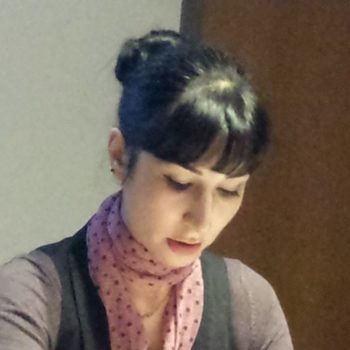SOFIA AMARANTIDOU

archaeologist-museologist Thesis title: Museums and Social Exclusion. New Challenges, New Perspectives The present thesis deals with the role of museums throughout time, focusing on the modern notion that museums are a means to help people regain their position in society. Observing the evolution of museums as tools in the hands of the establishment, to promote and […]
archaeologist-museologist
Thesis title: Museums and Social Exclusion. New Challenges, New Perspectives
The present thesis deals with the role of museums throughout time, focusing on the modern notion that museums are a means to help people regain their position in society.
Observing the evolution of museums as tools in the hands of the establishment, to promote and consolidate their power, we come to the conclusion that by nature, museums are of conservative nature.
The tendency that museums are mutual and objective institutions and that they are the sole source of the irrefutable truth, is nothing more than the conjuring ability of the social- economic class to serve this tale, the words of the white man, the middle class man the heterosexual man.
Postmodern time, questions this point of view, and tries to highlight the multiple interpretations of the exhibited material.
The development of the science of Museology during the 60’s has played a significant role on the reconstruction and reconsideration on how artifacts are to be presented and how their stories are to be told. In aid of this attempt, we have the support of a new science which appears almost simultaneously, the science of Museum Education.
The prerequisite of a successful visit to a museum is to make the visitor aware of what the museum wishes to communicate to the public. The goal of the museum educational method is to equip the visitors with the necessary tools so he or she, are in the position to decipher the word of the museum. In order to accomplish this, the public is not dealt with, as if it was a homogeneous group, but it takes each and everybody’s characteristics into consideration.
Its main objective is to obliterate every kind of obstacle, mental or physical, in order to allow free access to the museum and the ability for everyone to enjoy the cultural goods.
The present research examines the way by which we can satisfy the request for an accessible and modern museum. By implementing methods that broaden the range of people who visit museums, do we really adopt tactics that will equate to social inclusion?
At the same time, we try to clarify the term “social exclusion” the ambiguity of which, leads many museums to a variety of different approaches. Social exclusion is a complex social matter, it is experienced by people and groups with different characteristics and for many reasons, the goals of institutions fail sometimes to see the problem in a holistic way.
Contrary to the ideas that defend the “sanctity” of the institution, the traditional way of running the museum, which places the collection as the highest priority, and do not wish the transformation of the museum into a “social worker”, modern scientific approaches claim that museums can really contribute in the struggle to stop social exclusion not only on a cultural level, but also on a social political level as well.
The English museums paradigm proved that the organizations really can support changes, on an individual level, by promoting creativity and personal development, on a community level by encouraging cohesion and activating citizens’ participation. Finally on a social level museums can enhance the struggle for inclusion, fight discrimination and break all forms of stereotypes.
The second part of the thesis, researches new ways by which the museums of Thessaloniki can meet new challenges. Which factors determine their position? Is there room for innovating actions which will include those who were previously excluded? What is the role of the State?
The assignment is concluded with the implementation of an educational programme for addicted individuals.
According to the following excerpt from the definition of museums of ICOM:
“[…] in the service of society and its development, open to the public…” the role of the museum cannot be misinterpreted. The involvement of the museums in the life of the community, the cooperation of cultural institutions, and the support of those who are excluded, is the key to assure that the objective of the museum has been accomplished.
